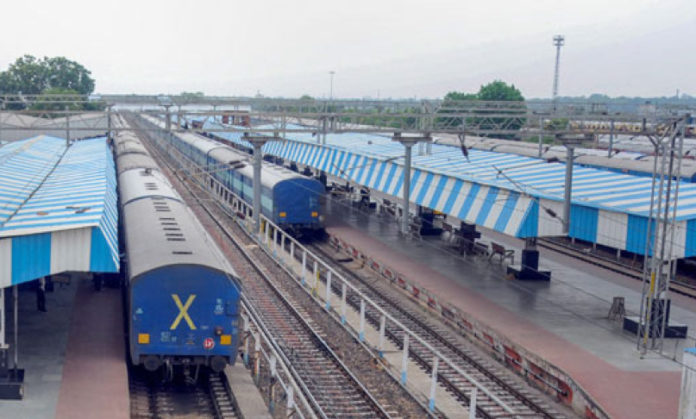New Delhi: The World Bank will provide a loan of $245 million to support India’s efforts to modernize rail freight and logistics infrastructure, according to a statement issued on behalf of the global bank.
The Rail Logistics project will help India shift more traffic from road to rail, making transport—both freight and passenger—more efficient and, reduce millions of tons of greenhouse gas emissions (GHG) each year.
The project will also incentivize more private sector investment in the railway sector.
Indian Railways (IR) is the fourth-largest rail network in the world, having transported 1.2 billion tons of freight in the fiscal year ending March 2020.
However, out of India’s total freight, only 17 percent is transported by rail while 71 percent is transported by road.
“Capacity constraints of IR have limited the volumes and reduced the speed and reliability of shipments,” the statement said.
“As a result, IR has been losing market share to trucks over the years; in 2017-18, its market share was 32 percent, down from 52 percent a decade earlier,” it added.
Also read: World Bank to provide $250 mn for Gujarat schools
Road freight is the largest contributor to GHG emissions, accounting for about 95 percent of emissions of the freight sector.
Trucks also accounted for about 12.3 percent of road accidents and 15.8 percent of total road transport-related deaths in 2018.
Rail emits about one-fifth of trucks’ GHG emissions, and with IR planning to become a net-zero carbon emitter by 2030, it has the potential to eliminate 7.5 million tons of carbon dioxide and other greenhouse gases each year.
“While reducing greenhouse gases, the new project will also benefit millions of rail passengers in India as railway lines get decongested with freight moving to dedicated lines,” said Hideki Mori, Operations Manager & Acting Country Director, India, World Bank.
“Integrating railways with the wider logistics ecosystem is also key to reducing India’s high logistics cost, which are much higher than in developed nations. This will make Indian firms more competitive,” Mori added.
Also read: Rajnath Singh discusses ways to enhance Defence Coperation with Australian Counterpart
The Rail Logistics project will strengthen India’s multimodal transport hubs and terminals, by improving rail links with ports and inland gateways, and building first- and last-mile connectivity to railways.
The new Eastern Dedicated Freight Corridor-3 (EFDC), also supported by the World Bank, is already helping faster and more efficient movement of raw materials and finished goods between the north and eastern parts of India.
The Rail Logistics project will connect several other such infrastructure projects and bring in private sector efficiency to augment rail capacity, create and manage intermodal terminals, and improve service quality and value-added services through private train and terminal operators.
“India is increasingly focused on multimodal transport, particularly with railways as the central pillar of efficient logistics in the freight transport segment,”
“The project will help leverage private sector efficiency for integrating rail transportation into cargo supply chains.”
The $245 million loan from the International Bank for Reconstruction and Development (IBRD) has a maturity of 22 years, including a grace period of 7 years.








